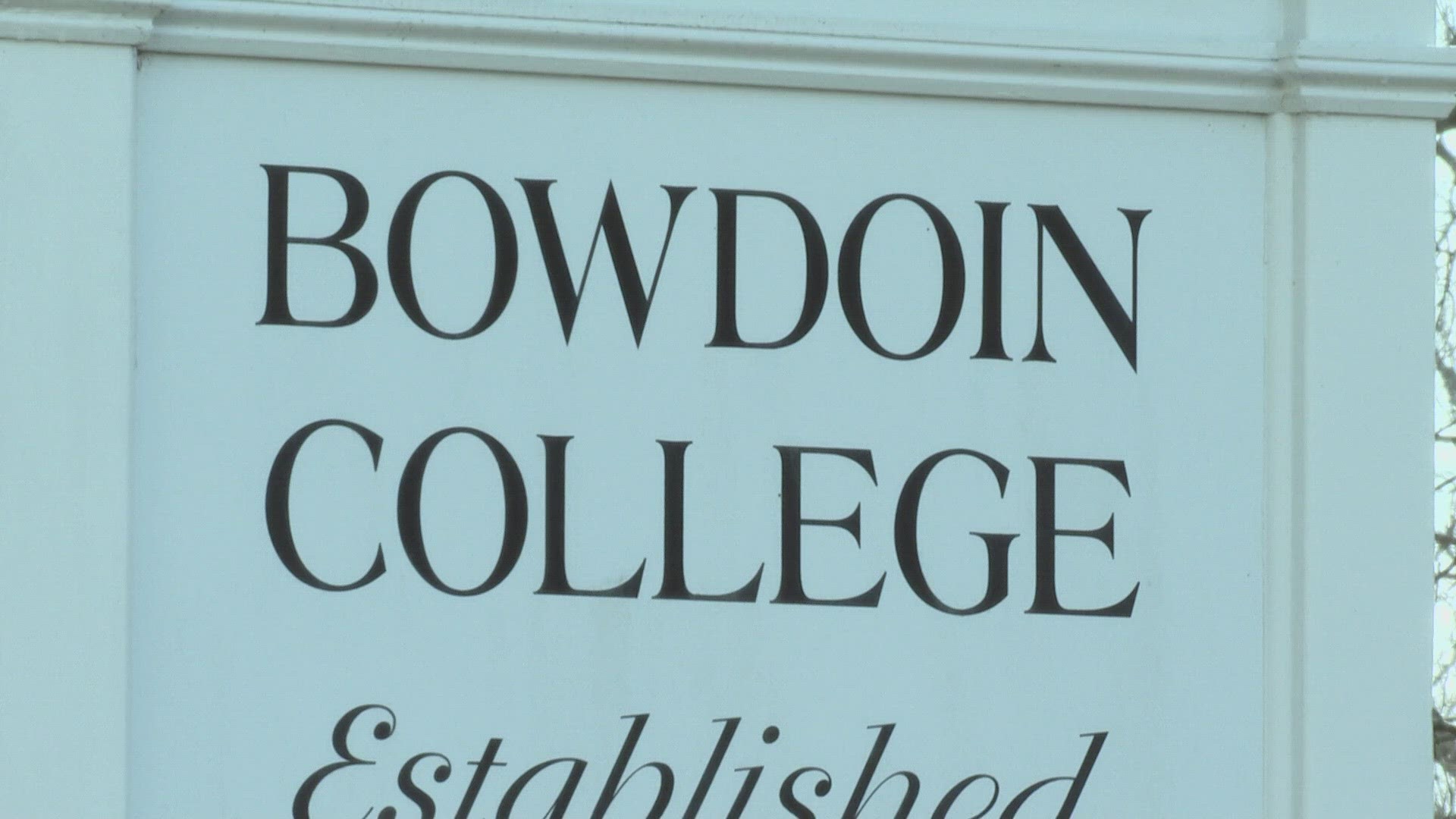Editor's note: The attached video was published on March 6, 2024.
Bowdoin College student workers trying to form a union have filed a labor complaint, alleging the college threatened to retaliate against them and promised better working conditions if they ditch the effort.
A majority of the college's "ResLife" student housing workers last week submitted a petition to college President Safa Zaki announcing plans to unionize in a bid to obtain higher pay. The college on Friday declined to voluntarily recognize the union, meaning the National Labor Relations Board will oversee a union election set for April 3.
Also on Friday, the Office and Professional Employees International Union Local 153, which is representing the workers, filed an unfair labor practice charge with the board. Luke Robinson, a sophomore and ResLife worker who supports unionizing, said the charge stemmed in part from a statement the college posted on its website about the union effort.
"The (statement) is just brimming with the most obvious anti-union propaganda that you can imagine," Robinson told NEWS CENTER Maine, adding the statement contained inaccurate information about union dues and was therefore coercive.
A college spokesperson said the college hasn't received a copy of the complaint but is confident its statement, which includes a list of frequently asked questions and answers, does not "run afoul of federal labor law."
The college hired Littler Mendelson, the world's largest employment law firm, to represent it. Littler has represented Starbucks and Amazon as those companies have attempted to push back against union efforts.
"That blew our minds, that as a small, liberal arts college in the middle of Maine, they would recruit the world's largest anti-union law firm," Robinson said. "They espouse these liberal values and then as soon as they are presented with a grassroots, student-led unionization effort, their response is to bring in the big guns and pay this outside law firm gross sums of money to quash this effort. I thought it was really telling about where they really stand."
Bowdoin officials said they hired the law firm for its experience: "Our community has not had a union vote previously, and we know there are several important steps that we must observe as guided by federal law. We wanted to approach the union vote with both fairness and compliance, so we looked for law firms with deep experience in these matters, including with other colleges and universities. For that reason, we chose Littler Mendelson to work with us to ensure that the process is conducted properly and legally."
The ResLife workers said they deserve higher pay. They said they are paid between $3,600 and $6,900 per year, which does not cover the cost of housing on campus. They pointed to other colleges where student housing workers have unionized, including Tufts University, where those workers are provided free housing, equating to roughly $10,500, plus a $1,425 stipend and 80 meal swipes at campus dining facilities.
"There are limits to what an employer can do for you out of goodwill," Robinson said. "They're not going to just hand you money. You have to ask for it. And as student workers, we need the leverage provided by a union to make that demand.
"We’re asking to be compensated in a way that is comparable to other universities. All these other ResLife workforces are getting paid thousands upon thousands of dollars more. … Beyond that, we’re trying to set up a structure where we can continue to advocate for improved workplace conditions."
Bowdoin said in its statement its policy to not provide the workers free housing is based on equity: "Because of Bowdoin’s policy to meet the full need of every student applying for financial aid, many students have their room and board costs fully or partially covered by their financial aid packages. Waiving room and board would mean that students who qualify for financial aid would be compensated less than full-pay students for equal work."
The workers said they patrol buildings, host weekly floor dinners, plan community-building events, and serve as a touchstone between students and campus resources. They said they are expected to attend uncompensated summer training sessions, with some days running 12 hours, and during the school year often work more than the 7 to 12 hours per week advertised for their positions. The college said the workers are asked to report their hours worked on a weekly basis and are paid for extra time.
Unfair labor practice charges like the one filed by the workers are typically resolved in a settlement between parties, according to the labor board.
The workers' union would become official if a majority of those who vote approve it April 3. Of the college's 79 student housing workers, 65 of them — or 82% — signed the initial union petition. If the vote is successful, it would be Bowdoin's first union.
"The most powerful thing we can do from our position is unionize because then it sets up precedent," Robinson said. "It opens the door for other groups on campus who might be in greater need of these benefits we are advocating for ourselves."
College officials said if the union vote is successful, the college will "respect their decision and work in good faith with the union to negotiate a collective bargaining agreement."

